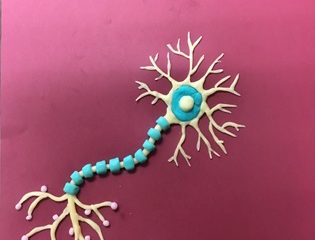My students know that I have some major biases (I try to share these upfront), and in particular, I really don’t like the idea of medicating developing brains when alternative treatments are available. I am not a clinician, and I often feel somewhat isolated in taking this viewpoint, but this practice just makes me nervous.
On November 26, 2015, the Cochrane Database of Systematic Reviews published a meta-analysis of 185 randomized controlled trials that showed very little support for the use of methylphenidate (Ritalin, etc.) for the treatment of attention deficit hyperactivity disorder. Seventy-two of the studies were funded by the pharmaceutical industry, and the authors of the study found evidence of bias in ALL of the reported trials.
One major weakness in the trials was their short duration, usually six months or less. This point is important because children are often kept on medication for years, yet these outcomes are yet to be thoroughly investigated. The results of the Multimodal Treatment Study of Children with ADHD showed no long-term improvements resulting from medication for ADHD. In addition, the studies outlined very frequent adverse effects such as sleep problems and appetite problems.
The authors concluded that “The general perception of methylphenidate as an effective drug for all children with ADHD seems out of step with the new evidence.” How the pharmaceutical industry and psychiatry respond to these findings will be interesting to watch.



11 Comments
emmanishimura96 · December 4, 2015 at 11:26 pm
This study is somewhat disheartening, because in my opinion it is an example of pharmaceuticals taking the easy way out. People in America do not like to address illness that involve the brain, such as depression, schizophrenia, or ADHD as opposed to bodily illnesses like a flu or broken bone, because it is more complicated in addition to having all of the stigma surrounding it. Therefore, most people will attempt to use the fastest and most notable treatment instead of the best one.
hannahphelps · January 11, 2016 at 8:27 pm
I completely agree with the stance taken on how the harmful side effects of over-medicating ADHD. In knowing many friends diagnosed as children and still on medication and seeing the work my mom, an LCSW, does with children on Ritalin, I have grown to be extremely skeptical of medication in times when something such as psychotherapy can be a resolution. I think oftentimes individuals with the disorder and family want to quickest solution; however, I have seen the side effects of Ritalin creating other obstacles. We should to weary of this societal issue and continue to look into ADHD so we can discover other options for treatment.
jessicametzinger · January 23, 2016 at 1:30 pm
It’s crazy how many children are medicated for ADHD currently. I have so many friends that are on medication for it, and sometimes I wonder if it’s really necessary (obviously in extreme cases, it may help, but for mild cases I think there could be better ways to deal with it). There are also lots of side effects and people abusing ADHD medication. I know someone who has a prescription for it, but if she has a lot of work to do one night, she’ll take her medication late in the afternoon and without eating so that it has more of an effect, which seems really unhealthy to me (but I’m not a doctor, so I can’t say so for sure; just my opinion).
Minnie · January 24, 2016 at 10:39 pm
I, too, have an issue with medicating brains especially those of children. ADHD in particular is an issue because of two reasons: it is over-diagnosed/misdiagnosed and many children are given medication without an alternative or even behavioral counseling along with medication. Because of the recurring stories of patients getting misdiagnosed with ADHD and the misuse and abuse of prescribing medication, I have come to a strong dislike for medication on individuals with a mental disorder that have no counseling “attached” to that medication. The pharmaceutical companies have given the media this notion that medication is a quick solution, and the only solution, to treating patients. I have a back and forth internal fight with myself whether I want to study to become a psychiatrist or not because of the medication. I could work to start the trend of more aware psychiatrists who ethically counsel before they prescribe and continue counseling when they prescribe. My friend was diagnosed with ADHD and was given medication. He looks back at it now and realized that his psychiatrist was not good at listening and paying attention to what he was saying, which in turn increased the dosage of his medication until he refused it. Once he refused medication, he didn’t see any counselor. More and more I want to become a psychiatrist just so more people don’t have to be exposed to psychiatrists or doctors who take the easier route and medicate.
rzehnder · January 31, 2016 at 8:17 pm
I completely agree that it seems like ADHD is being over diagnosed and that children with ADHD are being over medicated. It seems that like it should be treated in a similar way to how depression is treated. Only the severe, debilitating, cases should be medicated. Where in other cases other options, such as providing tools that help with the parents and the children cope, should be used.
annahempill · May 1, 2016 at 9:52 pm
Growing up my mom was always very hesitant about medications. At first I didn’t understand why when taking medications a doctor said you needed helped the situation. However, now that I am older I have seen how prescription medications have transformed some of my close friends and family. In some cases the medication fixed the problem but caused new ones, and in other cases it has left people I love thinking that a pill is the only thing that can cure them. I am not surprised about the results of this study, but it makes me sad to think that our society leans so heavily on drugs when there are other options available. I found this blog very interesting and it made me think again how detrimental prescription medications can be to young children who still have developing brains.
Bcrowley712 · May 12, 2016 at 7:12 am
Medication involving mental illnesses I feel just masks the issue. I am on anti-depressants right now and what this experience has made me realize is that yes everything is fine and dandy while I am on the medication but I still do not know how to cope with depression when off of the medication. The same goes for ADHD children. The children may be calmed down while on the medication but when they grow up they will most likely want to get off the medication and they will not know how to cope with the hyperactivity. In my opinion therapy is a much better solution to taming mental illnesses than medication, although in many circumstances it may be harder to deal with for the patient.
alexandrabush · May 31, 2016 at 1:17 pm
I agree that medicating developing brains doesn’t seem like a good idea. Especially when there are alternative methods. Over summer, I shadowing a school psychologist in my mom’s school district to see if that might be a career option for me. She expressed her concern of using medication for ADHD. Because she worked in a very underprivileged district, she believed that many teachers were sending her students that were just simply acting out because of problems at home and not because of ADHD. Many parents wanted her to diagnose their children so they could get medicine, but she would always try to find an alternate method. This truly is a problem that needs to be fixed.
RachelSemple · October 14, 2016 at 5:57 pm
As someone who works with children a lot, I am very aware of the amount of children who are prescribed ADHA medication. I continued to be astonished by the large, and seemingly growing, amount of children who feel dependent on this type of medication. I also tend to have a large amount of skepticism when it comes to pharmaceutical companies, because like how their bias in the study mentioned implies, pharmaceutical companies seem to act in the interest of money rather then morals. I believe that pharmaceutical companies push parents for give their kids medications when, in reality, their may be other options for the child. There should defiantly be unbiased long term research conducted to understand the long term effects of ADHD medication.
Charlene Niku · November 16, 2016 at 2:11 pm
I’m really glad I came across this article because I’ve always been interested in learning more about ADHD. Although I have never been diagnosed with ADHD, or let alone even tested for it, I sometimes think that I have some symptoms of the disorder. But then I also think that most students and children these days have trouble focusing because there are so many distractions around us. With that being said, I’ve always been a bit skeptical of drugs like Ritalin or adderall. I think that some of their effects are placebo based but I’m no expert and obviously I wouldn’t know for myself because I have never taken a drug to treat ADHD. I’ve had a lot of experience working with children in various environments and have noticed how some children are way more hyperactive than others, but I don’t think that medicating them is the only/best solution. I agree that the new research should be considered by physicians and psychiatrists before prescribing these medicines. I’m generally not a fine of taking medicine if it is not necessary and I was glad to read that alternative treatments are probably a better idea for developing brains.
Amy Edelstein · April 23, 2017 at 12:08 pm
If you ask my friends, parents, or brother, they will tell you that I am extremely against medication. I will rarely take Advil to simply help my headache go away – instead, I will drink water and wait for my body to cure itself. Obviously, there are extreme cases that must be handled with medication, and that is a totally different story. However, I am a strong supporter of alternate healing methods, especially for cases involving the brain and mental health. Instead of taking medication for depression, there are other alternatives that can ease symptoms, such as yoga, medication, or diet changes. This post specifically talks about ADHD, a disorder that seems to be taking over our youth. It seems like doctors are diagnosing children with ADHD without seriously taking into consideration the implications and side-effects of Ritalin. Every other person I meet has access to Ritalin because they were diagnosed with ADHD at a young age. But can’t we cure, or at least ease the symptoms of hyperactivity through other forms that don’t involve taking a pill every day? If such a large proportion of our population seems to be diagnosed with ADHD, I think it is time to find a healthier, safer, and less intense cure to this disorder. Let’s find other alternatives to cure brain and behavioral disorders without such harsh side-effects.